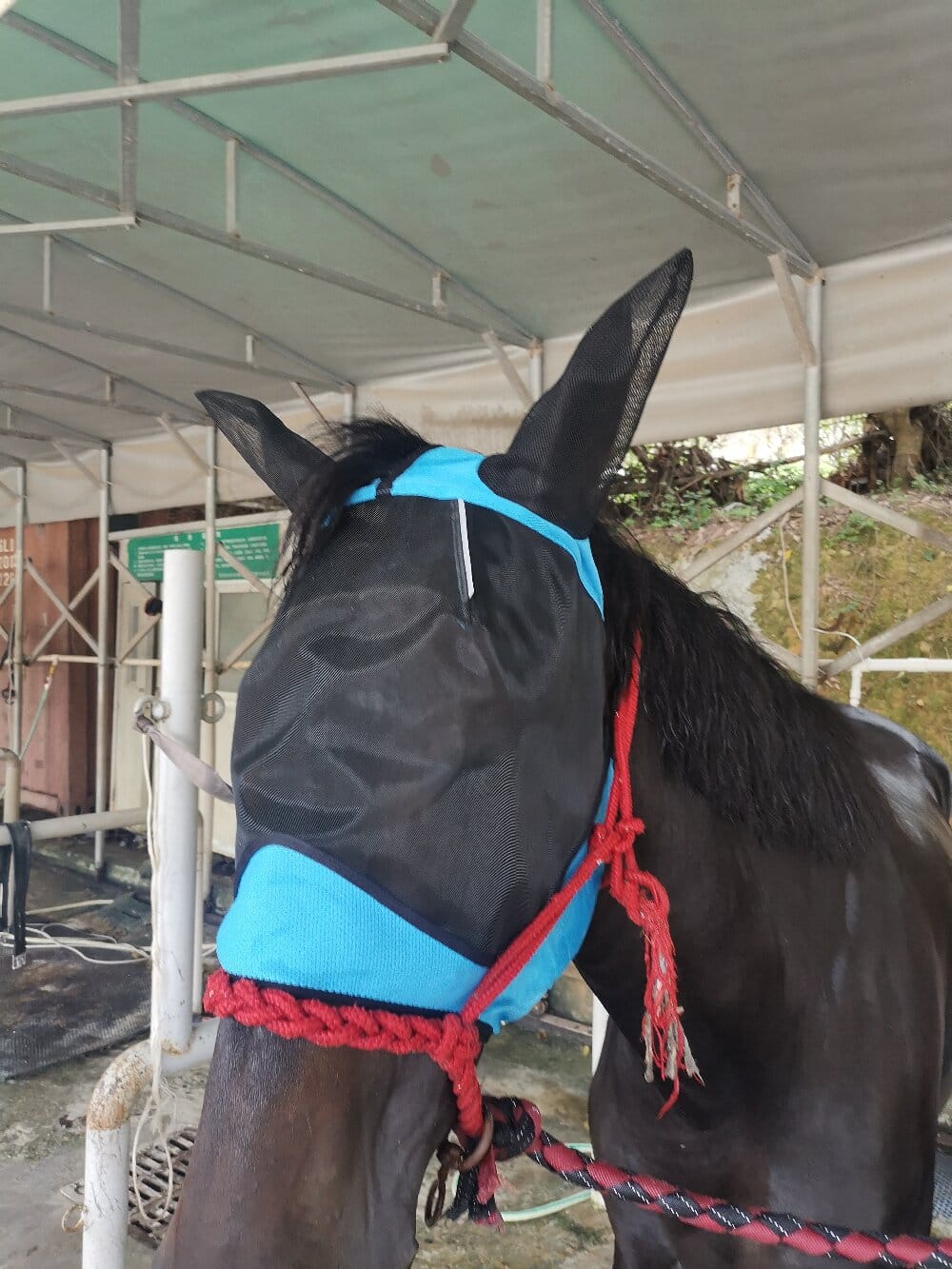As a horse owner, I’ve learned firsthand how crucial a horse fly mask can be for protecting my equine friends from irritating pests. These masks are more than just accessories—they’re a practical solution to shield horses from flies, UV rays, and other environmental stressors. Whether you’re a seasoned equestrian or a first-time horse caretaker, understanding the benefits and features of fly masks can make a significant difference in your horse’s comfort and health.
The Science Behind Horse Fly Masks
Fly masks are designed with lightweight, breathable materials that allow horses to see clearly while keeping insects at bay. The mesh fabric acts as a physical barrier, preventing flies from landing on sensitive areas like the eyes, ears, and face. Some advanced designs even incorporate UV protection, which is especially beneficial for horses with light-colored coats or those prone to sunburn. From my experience, investing in a high-quality fly mask reduces stress and prevents infections caused by constant insect bites.
Key Features to Look for in a Horse Fly Mask
Not all fly masks are created equal. Here’s what I prioritize when selecting one:
- Breathability: A well-ventilated mask prevents overheating during hot weather.
- Durability: Look for reinforced stitching and tear-resistant fabric.
- Adjustability: Straps should be secure yet comfortable, avoiding rubs or pressure points.
- UV Protection: Essential for horses spending long hours outdoors.
- Full Coverage: Some masks extend to the ears and muzzle for added protection.
How a Horse Fly Mask Improves Equine Well-Being
Beyond pest control, fly masks contribute to overall horse health. Flies aren’t just annoying—they can transmit diseases like equine conjunctivitis or cause painful sores. By minimizing exposure, these masks help maintain clear vision and reduce the risk of infections. I’ve noticed my horses are more relaxed and focused during training sessions when wearing their masks, as they’re not constantly swatting at flies.
Choosing the Right Fly Mask for Different Situations
Depending on your horse’s needs, you might opt for:
- Standard Fly Masks: Ideal for general use in pastures or stalls.
- Ear Covers: Great for horses bothered by flies buzzing around their ears.
- Nose Attachments: Useful for horses sensitive to insects around the muzzle.
- Winter Masks: Some designs offer warmth while still providing UV protection.
Common Misconceptions About Fly Masks
Some horse owners hesitate to use fly masks, fearing they might restrict vision or cause discomfort. However, modern designs are tailored for equine anatomy, ensuring a wide field of view and a snug fit. Another myth is that masks are only necessary in summer—flies can be active year-round in certain climates, so it’s wise to keep a mask handy even in cooler months.
Conclusion: A Small Investment with Big Benefits
After years of using horse fly masks, I can confidently say they’re a game-changer for equine care. They’re affordable, easy to maintain, and most importantly, they keep horses happy and healthy. Whether your horse is a competition athlete or a pasture pet, a well-chosen fly mask is a simple yet effective way to enhance their quality of life.

